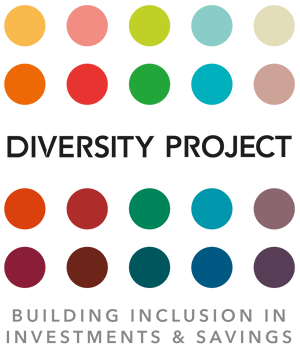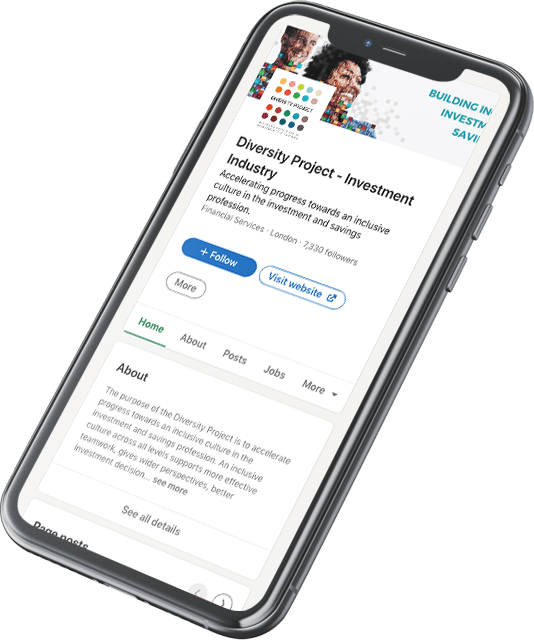Imagine watering your parched lawn, hosepipe in hand on a scorching hot summer’s day, when suddenly the flowing water stops. Not even a trickle! As you glance back, you realise there’s a kink in the hosepipe.
You un-kink the hose but, still, no water flows. Then, it hits you. Further back, a long way back, there are more kinks in that hose. Now, you go kink-hunting with purpose and intent. You walk the entire length of the hose, un-kinking all the kinks and, eventually, water does indeed flow, cool and fresh, onto a thirsty garden.
This is an essay on what it is like to be born a black person, born a long way from the hallowed boardrooms of UK plc or, indeed, the upper echelons of any of this great nation’s organisations. For someone born black, the journey, more often than not, is long and arduous; there are kinks and double kinks along the hosepipe, and un-kinking a single kink generally makes very little difference. Water still doesn’t flow.
That’s not a wrinkle; that’s a kink!
Here’s a kink example from my own experience that I shared once before. In 1987, I was a trainee barrister applying to chambers seeking a six-month internship (a “second-sixpupillage”) that would lead to a permanent position (tenancy). I wasn’t fussy – candidly, I’d probably have gone anywhere that would have had me. So, imagine my delight when, after a couple of weeks, I received an invitation to an interview at a high-powered set of chambers down in Inner Temple. I bought a decent suit and spent a day reading through some of the cases the leading barristers in those chambers had recently won.
Barristers’ chambers are magnificent, awe-inspiring places. On interview day, as I sat nervously on the edge of a plush brown leather sofa in the waiting room, surrounded by polished mahogany and a hundred bound volumes of Halsbury’s Laws of England, my pulse quickened. If I could, er, acquit myself over the next hour, I would be on my way. This was my big moment. Well, it went better than I could have expected.
The selection panel of QCs and distinguished senior members of the Bar seemed to approve of the answers I gave to their tricky questions. There was even some jokey barristerial banter on my way out. I was all set. A couple of days later, I heard back. The interview panel really liked me and were ready to offer me a place to do
my second six pupillage.
However, there was just a little wrinkle they wanted to straighten out with me before formally offering me the place. Rather unfortunately, they said, they had taken on a black tenant the previous year, and just couldn’t do it two years in a row. It didn’t fit with the image they wanted to project. So, provided I was prepared to come and do a second six pupillage on the clear understanding that they would not afterwards be able to offer me anything permanent, well then, I would be very welcome. They hoped I understood their position.
That is what a kink looks like. For sure, there are thousands of white trainee barristers who don’t get offered a tenancy at the Bar, but none of them has ever been told it was because those chambers took on a white guy last year and didn’t want to do it again quite so soon. Hoping they understand. I tell you that story from the archives, not because I want to rake over some ancient coals, but because it neatly illustrates the toxic characteristics of a kink in the hose-pipe of life: first, it’s a critical blockage in the
system that stops the water dead in its tracks.
Second, it’s unexpected; there you are flowing along the cool, sequestered vale when, suddenly, out of nowhere, you hit the kink. Great interview, shame you’re not the right colour.
Third, kinks are usually beyond your control; if your skin colour is black or brown, you cannot make it white. If you didn’t attend the right school, that’s just the way it is. If you’re a young woman, you cannot become a young man.
The Operating System has kinks hard-coded
Many organisations (perhaps yours is one) specialise in placing kinks in their systems precisely so they end up with the people they want. They only recruit into their senior positions from a few, select universities.
The system promotes more men into senior positions than women. They only advance and progress people who “fit” and who come from the right sort of places.
It’s all subtly done, but it’s done. Incidentally, the vanishingly small number of black professionals who do make it down the long and winding road that is the corporate hosepipe are, more often than not, privately educated, Oxbridge graduates. In a sort of diplomatic immunity, they’re ushered along past the corporation’s kinks because, to all intents and purposes, they behave, think and speak exactly like the most successful of their white peers.
How does all this work out in practice? Not well. One example, (in the context of this piece) is that there are spectacularly few black CEOs of FTSE listed companies. (I think the number is approximately zero. Or, as near as makes no difference.) Or, black partners in law firms. Or, in accountancy firms. Or, at the top of the medical profession or in the judiciary.
Is that about to change any time soon? Not that I can see. Why would it? The System is run through with conscious and unconscious biases that produce kink after kink.
Some of those kinks (though not all) are a result of the pervasive, casual racism still evident in parts of society today. Just last week, an obscene racist graffiti attack shocked the residents of – wait for it – preppy East Coast Nantucket! But, even as we calm ourselves with the reassurance that this kind of thing only happens in America, it transpires that, in January 2018, a group of intelligent, well-educated students at Exeter University, right here in the UK, posted racist comments in a WhatsApp chat group they mistakenly thought was private.
This primal, pack mentality takes root early in life. Also in January 2018, a bunch of young school kids in the gentle, honeystone World Heritage City of Bath, also ere in the UK, thought it would be a bit of a hoot to tie their black friend to a lamp post during lunch break, hit him with a stick, and yell racist epithets in a mock slave auction. Yes, really. At both the University and the school, when the perps got busted, they all protested it was just a joke. A bit of harmless fun.
“We didn’t really mean it!”
But, ‘ In Whatsapp, veritas!’ as the Romans might have said.
The inconvenient truth is that racism is alive and well in the West. Sometimes it’s screaming spit and bile; other times it’s nuanced and sotto voce. (For more, read this
month’s Race Issue by National Geographic).
There is a spectrum of racism and it has to be called out however and wherever it shows up. To do that properly, we need to put it squarely onto the agenda.
I am certainly not suggesting that our great institutions and corporations are run by racists. That’s plainly not the case – there are many CEOs who are working hard to deliver and implement a “diversity and inclusion” game plan – but there is, undeniably, a kink-filled system that militates against black people getting to the top or realising their full potential.
So, much as this article makes you uncomfortable, we have to have this conversation. If the system is to change, first, we have to talk about it.
Five Playing Cards to Hide Behind
Here’s my take: Chief executives have five playing cards from which to select when they get asked the following question:
“Tell me, why are there so few Black people in senior management in the firm you run?”
Card One
CEO: “Look, I’m a huge supporter of diversity and inclusion. If there were suitable black people I could promote within our organisation, of course we would totally promote them. But what can we do? There isn’t anyone of colour to promote to the role of COO, CFO, CRO or CTO or indeed, anywhere else in the C-Suite”.
This may or may not be true, (it isn’t always) but, if it is true, then it’s because that’s the system over which you preside and you need to take decisive action to change it.
Card Two
CEO: “What are you talking about?! Have you seen our BAME employee numbers? They are totally off the charts!” Which may very well be accurate. “BAME”, incidentally,
stands for “Black, Asian, Minority Ethnic” and is the current vogue collective HR acronym for “people that aren’t White”. And that’s the problem. Not all people that aren’t White are the same. We don’t all face the same kinks.
For example, our British Asian friends have, by and large in the last forty years, figured their stuff out and are achieving amazing things at every level within our greatest corporations. They are all over the C-Suite and ensconced in well-deserved, prominent, positions of management.
As James Kirkup put it in a Telegraph article: “There is a very good case to be made that British Indians are not just the most successful immigrant group in this country’s recent history, but the most successful group of people full stop.”
The same cannot be said of our black population. Not at all.
So, here in the UK, when you add up the significant number of successful Asian people in your firm (mainly of East African/Indian/Pakistani heritage) and then make a general declaration of success across all racial minorities, you are rigging the stats. It may be unconscious, but they’re rigged all the same. (If you don’t agree with this assessment, why not invite some people of colour (by which I mean black) from within your organisation to meet in your office so you can ask their opinion?)
Card Three
CEO: “Why does it matter how many black people we hire or promote? Surely, it’s only important that we recruit the best person for the job. Who cares what colour they are?”
Well, actually, it does indeed matter. There is a diversity of cognition that your firm lacks if you only ever hire the usual suspects and overlook a significant proportion of society; a proportion whose interests, by the way, your firm almost certainly increasingly represents.
Simply put, the black population has a perspective on modern society not shared by anyone else. This derives from being part of a widely disadvantaged minority group, and that participation, in turn, provides a unique experience when it comes to coping with adversity, dealing with unfairness, unconscious bias, stereotypical profiling, fitting in where you don’t always belong and making it when you really shouldn’t. All very different lenses.
You see, when a leader only hires the same semihomogeneous folk, he or she creates a tribe that, essentially, sees the world the same way. This obviously has its advantages, but,also has a fatal flaw. Consider this observation by Morgan Housel in his brilliant Ideas That Changed My Life:
“Tribes are as self-interested as people, encouraging ideas and narratives that promote their survival. But they’re exponentially more influential than any single person. So tribes are very effective at promoting views that aren’t analytical or rational, and people loyal to their tribes are very poor at realizing it.”
The punchline: if you want to guard against making bad strategic decisions, would like to create an amazing place to work and generally seek to run the best organisation you can, with a Glassdoor score approaching the magic “5.0” Then you should, as a matter of course, hire people with a wide spectrum of contrasting world views into your ecosystem. And note there’s a Glassdoor category for best CEO.
Already, institutional investors are including new “markers of excellence” in their ESG assessment of “companies most likely to succeed”. A company with a meaningful number of women on its board stands out. If the board has taken decisive action to balance its gender representation, that’s often a good indicator that it is taking care of governance throughout the organisation. And vice versa. Soon, those same investors will also be asking whether you hire, mentor and promote black employees.
Card Four
CEO: “I have never actually had this conversation, it makes me deeply uncomfortable, and I simply don’t know how to have it. The truth is, I am very nervous of using the wrong descriptive word, saying the wrong thing, or upsetting someone, so I just never go there.”
Obviously, no CEO actually admits this out loud, but it’s what most of them are thinking. I mean, it could go horribly wrong: do you say, “black”, “coloured”, “mixed race”, “mixed heritage”, “person of colour”, “African American”? How come you’re allowed to describe someone as a “person of colour” but not as “coloured”?
Incidentally, it always makes me smile when, in conversation, black people are referred to as “BME”. As in, “our BMEs are a particular focus this year”. Everyone knows BME means “black” (the missing “A” from “BAME” is the clue) but everyone’s tip-toeing around the dreaded B-Word.
It is understandable. There are invisible, unknown, shifting cultural norms that are all too easy to contravene. It’s your worst nightmare. One slip-up and we are talking Daily Mail Online, Commons Select Committee, Front page FT. All the above.
Why are we so scared to talk about the issue of race? Reni Eddo-Lodge (author of Why I’m No Longer Talking To White People About Race) blames Britain’s collective amnesia about race on the country’s white-dominated cultural institutions, which she says can be “hostile” to critical thinking on the issue.
“Some of the world’s best coverage on race has come out of the U.S.” because its papers have invested heavily in black writers, like the Atlantic’s Ta-Nehisi Coates or the Washington Post’s Wesley Lowery, she says. “I’m not seeing that in the U.K.” At any rate, the conversation rarely happens at board level, or, if it does, you end up playing Cards One, Two or Three or the Killer Card: Card Five!
Card Five
CEO: “We are on the case. Believe me, we are doing our level best to ensure that more people of colour are hired into our organisation and promoted into the top echelons of the firm. We know it isn’t happening fast enough, but we are on the case!”
This is the card I see played most often. Although it ounds the most reasonable, in practice it’s the most invidious. That’s because it’s the card that gives the player a plausible excuse for inaction. The seasons come and they go, nothing actually happens and no-one holds anyone to account because we’re always “on the case”. Of course, often, despite the protestations to the contrary, you’re not on the case. So year after year goes by and the C-Suite colour chart stays the same.
Un-Kinking the Hose
If you’re going to help un-kink the hose, you need to know what the kinks look like. They run the length of the hosepipe: from very early childhood when, often, there is no-one telling black kids they can achieve something special in life (not the same in British Asian households where the basic message is: doctor, lawyer or accountant, nothing else)*; through to adolescence, when the dearth of high-achieving black role models means young black kids cannot look to the top of the judiciary or the medical profession, or the world of finance, or the arts, and think “That could be me one day!”; through to late teens when, if you do find yourself in higher education, no-one comes looking to hire you into their prestigious blue-chip organisations; through to the employment years, when the working corporate assumption often seems to be that you might, maybe, make it into middle management, but Partnership, Senior Management, the C-Suite, the Bench, the Board, the Chairman? – that’s just not going to happen.
*Obviously, I’m generalising; there are Black Tiger Moms and Black Panther Dads who push their kids hard, and riff relentlessly around the doctor/lawyer/accountant thing but, even then, those kids rarely get to the very top of their chosen profession. Over the years, the kinks have a cumulative effect: those children who have no role model, who don’t get the mentoring they need and who never make it onto the corporation’s radar or wish list, do not get hired and, 25 years later (no surprise), there’s no-one to promote. (Of course, this doesn’t just apply to the black demographic; there are many other deprived and/or disadvantaged ethnic minorities who get kinked out in much the same way).
My central premise is that every single one of those kinks needs to be addressed or, still, no water will flow. Obviously, corporations cannot be expected to deal with each and every kink along the hose, but they need to roll their sleeves up and get properly involved wherever they can. Believe me, you will have incredible impact if you are prepared to throw your weight behind this and help straighten out some kinks.
Here are ten actions you can take. If ten is too many, just choose one. But, choose one.
- Have discussions with black stakeholder groups. Ask how you can get involved. You’ll find plenty, once you start to look. Send me a note, I’ll send you some. In Financial Services, reach out to the Diversity Project.
- Invite black school kids to come to visit your offices for a day, every quarter. Teach them essential skills for a day. Ask your staff to sign up for the programme and prepare to be inundated with volunteers.
- Go to their schools and tell them they can be somebody. That you would love to help make it happen. Explain to the school head that you have a special programme and that you’re inviting 20 pupils to come to your headquarters once a quarter.
- Actively pursue and recruit people of colour from universities you wouldn’t normally consider; you’ll be amazed at the talent, grit and diverse thinking you find. Send your CEO in person to give an inspirational talk to the university’s Afro-Caribbean Society about values and purpose and aspiration. Tell the students that if they graduate with a good degree, there’s a place for them in your firm. Look them in the eye. Make them know you’re serious. They will know that anyway, because you’re there in person.
- Get tickets to see the next Chineke! concert. If there are any left. Bring your team.
- Take an interest in the lives and journeys of the black people in your organisation. Take them out for coffee or lunch and ask to hear their stories. You’ll be inspired. Maybe, you’ll even appoint them to the C-Suite.
- Put this specific (black) issue onto your board agenda alongside the gender and LGBT items. It will force you to think deeply about it.
- Set some measurable actions to commit to over the next year.
- Ask five senior people in your firm (preferably those with absolutely no spare time) to commit to mentoring some of the more junior black folk in your firm through the kinks.
- Tell your firm you care about this issue. In your next missive memo or Town Hall. Tell them you’re committed to helping bring about change and that you want to see more black people coming up through the firm. Ask for volunteers to help you think through what you can do.
Finding Sheku
Who knows? Maybe your personal commitment, encouragement and support will be the means by which the next Sheku Kanneh-Mason is discovered.
Here he is in spellbinding form at the BBC Proms showing the world just what is possible:
Notice the orchestra is 99% black! Who knew? Every member of that Chineke! orchestra had someone who, many years ago, placed a hand on their shoulder and told them:
“You can change the world through your music. Go do it!”
I tell you now, there are a lot more Shekus waiting to be discovered. Given the opportunity, they will change the world of finance, pensions, medicine, law, the arts and
the sciences, accountancy and on and on.
Equity not Equality!
Chineke!’s founder, the visionary Chi-chi Nwanoku MBE, says:
“Young black people of today don’t need equality, they need equity.”
What’s the difference? Equality is when you give everyone the same thing, regardless of what they need. Equity is when you give people what they need so that they’re on the same level as everyone else.
Take two steps forwards if…
Change can happen
It is possible to bring about societal change and to win the battle for hearts and minds, to straighten out the kinks. Once upon a time, there were very few black footballers in the Premier League. Those that ventured onto the pitch had their lives made misery. Eventually, as times changed, the #KickItOut campaign made clear there would be zero tolerance for racism in football.
Even the hooligans got the message. These days, there are so many black football stars, their colour doesn’t register. Those ubiquitous racist chants from the terraces are, largely, a thing of the shameful past. And, ten years from now, there will be lots of black football managers. That’s how the process works.
“It was ‘Kick It Out’ that convinced the people in football that change was possible.” – Greg Dyke former chair of the Football Association
Gavin!
One organisation that has got its act together is Vanguard Europe. With the appointment of Gavin Lewis as Head of Institutional Distribution in London, (and several other senior black appointments) the European arm of the US asset management giant is making good on its promise to “Do the right thing”. Gavin’s story starts when he was raised by a courageous, single mother on a social housing estate in Tottenham.
He is a super-cool guy (here’s his WhatsApp profile photo by way of corroboration) but his background wasn’t exactly what the City of London (or Wall Street, for that matter) looks for when it is making senior appointments, and Gavin is the first to credit Vanguard with actually walking the walk:
“I love Vanguard! They have given me every opportunity to show what I can do, and I intend to reward their confidence in me.”
The Conversation
If we want to see more black professionals rising to the top of our industries, we all need to learn how to have the Conversation. This is the starting point and single biggest thing. [White] management isn’t, by and large, equipped to talk about these issues and “we”, for our part, need to give permission and put it squarely on the agenda.
Between you and me, although I self-identify in this piece as black, my Dad is black and my Mum is white. That means I get to wear both hats (see . When is a Black Guy not a Black Guy? When he’s a White Guy!)
We people of colour have to be vulnerable and open, saying it like it is without pointing fingers. It’s time for radical candour in both directions. We have to take some responsibility for the situation in which we find ourselves. Other minorities got their collective act together, while we did not. Some of those kinks, early in the hosepipe, are of our own making, and we have to accept that and deal with it.
Those of us who have made some progress through that kinked-up hose have to turn around and walk back, reaching out to those who remain behind. We need to stride boldly into our schools and universities, even our prisons, and, with purpose and passion, tell our young black people that there is another way; that they must take responsibility for their lives and choose a better history. Too many of our young black people still struggle with an inferiority complex that tells them they aren’t good enough, smart enough or up to the challenge. They quit before they’ve begun because they don’t think they have a hope of being accepted.
We have an urgent responsibility to change that mindset; to educate, encourage, inform and inspire. If we want cool, fresh water to flow, we cannot leave it to someone lse. If not us, then who? Only when we play our part, will the removal of the toxic kinks that show up later in the Operating System actually achieve something. NOW is the time to work together to fix this. White, Black, Everyone!





